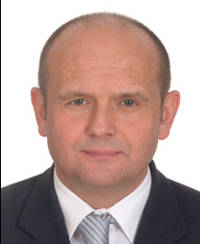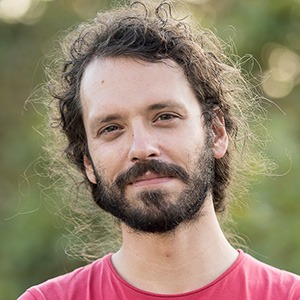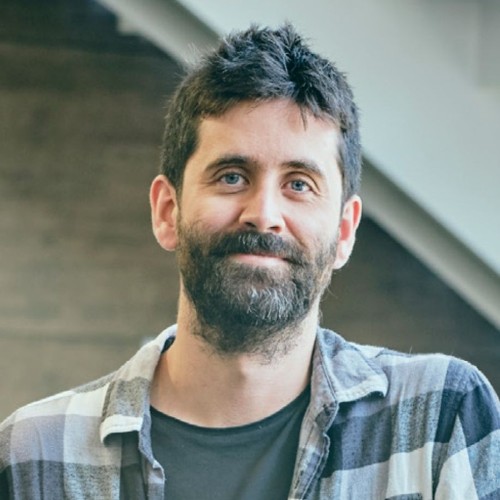Professors
|
Leo Wanner is an ICREA Research Professor at the Department of Information and Communication Technologies, UPF. Leo earned his Diploma degree in Computer Science from the University of Karlsruhe, Germany and his PhD in Linguistics from the University of The Saarland, Saarbrücken, Germany. Prior to joining DTIC as ICREA Research Professor, he held positions at the Institute for Integrated Publication and Information Systems of the German National Centre for Computer Science in Darmstadt, University of Waterloo, the University of Stuttgart and the Institute for Applied Linguistics (IULA), UPF. As a visiting researcher, he was also affiliated with the University of Montreal, University of Sydney, University of Southern California's Institute for Information Sciences, and the Columbia University, New York. |
|
Jorge Lobo is an ICREA Research Professor at the Department of Information and Communication Technologies of the Universitat Pompeu Fabra. He is also Visiting Professor at the Department of Computing of Imperial College London. He received his Ph.D. in Computer Science from the University of Maryland at College Park (1990), and a M.S. and a B.E. from Simon Bolivar University in Venezuela. Prior to his position at IBM Research, he was principal architect at Teltier Technologies, a startup company in the wireless telecommunication space acquired by Dynamicsoft, now part of Cisco Systems. Before joining Teltier, he was Technical Staff Member in the Network Computing Department at Bell Labs and a faculty member in the Department of Computer science at the University of Illinois in Chicago. His research interest crosses several areas in computers science: AI, Network and Distributed Systems Management, Security and Privacy. For more than a decade he has been working in understanding the role of policy, norms and regulations in computer systems and networks. Policies are pervasive parts of both technical and social systems. Computer systems and networks have policies that govern system configuration, workload management, service provisioning, storage, and access control for the integrity and confidentiality of data and resources. Dr. Lobo has studied languages and system models using mathematical logic to describe, analyze and enforce policies. At Bell Labs he did pioneering work in policy-based network management. He developed the language PDL, designed to implement application-independent policy servers, whose semantics is based on formal descriptions of action theories and automata. A PDL management system was part of the first Lucent softswitch telecommunication network. The main intellectual property of Teltier was a policy server he designed for privacy and availability management of Presence Servers, a technology that is now part of Cisco Systems. In IBM, he has worked in policy language independent analysis techniques, which have been implemented to analyze PMAC policies, IBM's Policy Management Infrastructure for Autonomic Computing, and XACML policies, a well-know XML-based standard for the specification of access control policies. A PMAC dialect is used in IBM configuration management products for Storage Area Networks and the analysis tool in the Tivoli event correlation system IMPACT. His work on role mining algorithms has been implemented and is part of IBM Identity Management Products. Jorge is an ACM Distinguished Scientist. He has published two books, over 100 refereed articles in scientific journal and conference proceedings, and holds 7 patents in policy technologies. |
|
Carlos Castillo is an ICREA Research Professor at Universitat Pompeu Fabra in Barcelona, where he leads the Web Science and Social Computing research group. He is a web miner with a background in information retrieval and has been influential in the areas of crisis informatics, web content quality and credibility, and adversarial web search. He is a prolific, highly cited researcher who has co-authored over 90 publications in top-tier international conferences and journals, receiving two test-of-time awards, four best paper awards, and two best student paper awards. His works include a book on Big Crisis Data, as well as monographs on Information and Influence Propagation, and Adversarial Web Search. Carlos received his Ph.D from the University of Chile (2004), and was a visiting scientist at Universitat Pompeu Fabra (2005) and Sapienza Universitá di Roma (2006) before working as a scientist and senior scientist at Yahoo! Research (2006-2012), as a senior scientist and principal scientist at Qatar Computing Research Institute (2012-2015), and as director of research for data science at Eurecat (2016-2017). He has served in the Program Committee (PC) or Senior PC (SPC) of all major conferences in his area (WWW, WSDM, SIGIR, KDD, CIKM, etc.), and is part of the editorial committee of ACM Transactions on the Web and ACM Transactions in Social Computing. He has been General Co-Chair of ACM FAT*2020, PC Co-Chair of ACM Digital Health 2016, 2017, and 2018 and of WSDM 2014; he co-organized the Adversarial Information Retrieval Workshop and Web Spam Challenge in 2007 and 2008, the ECML/PKDD Discovery Challenge in 2010 and 2014, the Web Quality Workshop from 2011 to 2014, and the Social Web for Disaster Management Workshop in 2015, 2016, and 2018. He is an ACM Distinguished Member, an IEEE Senior Member, and is accredited at the full professor level in Catalonia. |
|
Vladimir Estivill-Castro is a Full Professor at the Department of Information and Communication Technologies, UPF, and at Griffith University, Brisbane, Australia. Vladimir received a Mathematics degree (1985) and a Master degree on Mathematics (1987) from UNAM, Mexico City. He then obtained a PhD in Computer Science in 1991 at the University of Waterloo in Canada. He was an Assistant Professor at York University in Canada, a Lecturer at the Queensland University of Technology from 1996 to 1998, a Senior Lecturer and then Associate Professor at the University of Newcastle, 1998-2001, and Full Professor at Griffith University. |
|
Gergely Neu is a research assistant professor at the Universitat Pompeu Fabra (UPF), Barcelona, Spain. He obtained his PhD degree in 2013 from the Budapest University of Technology and Economics, where his advisors were András György, Csaba Szepesvári and László Györfi. Subsequently, he has worked as a postdoctoral research fellow at INRIA Lille (2013-2015), partially funded by the ABCDE fellowship program of the European Research Consortium for Informatics and Mathematics (ERCIM), an FP7 Marie Curie COFUND program. In 2015, he started a postdoctoral job at UPF, funded by another FP7 Marie Curie COFUND fellowship, the UPFellows program. In 2018, he was awarded with a "la Caixa" Junior Leader fellowship which funded his research until 2020, when he was awarded an ERC Starting Grant. Over the years, he has held various visiting positions, including a 3-month period spent at Google Brain Zurich in 2018 organized via Google's visiting faculty program and participation in a research program at the Simons Institute of UC Berkeley in 2020. Dr. Neu has published over 35 peer-reviewed papers in top-ranked conferences and journals in the area of machine learning. He is frequently invited to speak about his work at prestigious academic and industrial research labs (including Google NYC, Mountain View, and Zurich, DeepMind London and Edmonton, Microsoft Research NYC, and Yahoo! Labs NYC). Dr. Neu provides extensive service to his research community, serving on the program committees of all the important venues of machine learning research. His editorial roles include: senior PC member at COLT (since 2018) and ALT (since 2019), area chair at NeurIPS (since 2018), action editor at the Machine Learning Journal (since 2021). In 2020, he served as one of the program chairs at the annual conference on Algorithmic Learning Theory, a top learning-theory conference, and he served on the steering committee for the same conference between 2019 and 2021. In 2020, he was elected to serve on the steering committee of COLT. Dr. Neu has also served as local organization chair for several workshops and conferences, including the European Workshop on Reinforcement Learning in 2016, and the annual conference on Algorithmic Learning Theory in 2018. He has also served as one of the two social chairs at NeurIPS 2019. The work of Dr. Neu has also attracted some awards, including a Google Faculty Award in 2018, the Bosch Young AI Researcher Award in 2019. |

Anders Jonsson is a Lecturer in Department of Information and Communication Technologies, UPF. He is a native of Stockholm, Sweden. He received his MSc in Engineering Physics from the Royal Institute of Technology in Stockholm, and his Ph.D. in computer science from the University of Massachusetts Amherst. He joined UPF in 2005 as a visiting lecturer and member of the Artificial Intelligence group.
Anders' main research interest is devising automatic techniques for solving sequential decision problems in the form of either reinforcement learning or artificial intelligence planning. In particular, his focus is finding and exploiting the structure of such problems in order to simplify their solution. This structure can take many forms, but usually manifests itself either as abstract Anders also enjoys developing artificial intelligence solutions for real-world applications. During the past few years he has been involved in several research projects, both at the national and international level. He has also published several papers in prestigious international journals and serves on the programming committee of a number of international conferences. Apart from research in artificial intelligence, Anders really enjoys programming, and for the last five years he has served as coach of the UPF programming team at the Southwestern Europe Regional Contest, part of the ACM International Collegiate Programming Contest. |
|
Vicenç Gómez received his Ph.D at Universitat Pompeu Fabra (UPF) in 2008. He then worked as a research scientist in the Machine Learning research group at the Donders Institute of Brain and Cognition, at the Radboud University Nijmegen, the Netherlands for more than six years. In 2014, he rejoined the Artificial Intelligence and Machine Learning group at UPF with a transnational academic career grant (FP7 Marie Curie Actions). He is currently tenure-track faculty under a Ramon y Cajal fellowship. His main research interests are probabilistic inference and reinforcement learning. He is actively working on developing novel machine learning methods derived from first principles and understanding their theoretical properties, as well as their application for modeling, understanding and improving the functioning of social, information and networked systems. Vicenç has collaborated with a rich network of international research centers and universities, including the CNLS at Los Alamos National Laboratory (USA), the IAS group at Technische Universitaet Darmstadt (Germany) and the CCSML at University College London (UK), and the Max Planck Institute for Software Systems in Kaiserslautern (Germany). Most of these collaborations have taken place in the context of several national (Dutch and Spanish) and international projects (COMPLaCS and BrainGain). He has published more than 35 scientific papers in top-ranked journals and conferences in the area of Artificial Intelligence and Machine Learning. He provides an extensive service for the artificial intelligence community, acting as Program Committe member for major machine learning and artificial intelligence conferences. He has organized several international scientific events, including several editions of the Workshop on Planning and Reinforcement Learning at the International Conference in Automated Planning and Scheduling, the 13th edition of the European Workshop on Reinforcement Learning, and the NIPS workshop on Learning, Inference and Control of Multi-Agent Systems in 2016. Vicenç is the coordinator of the Master of Intelligent Autonomous Systems. |
|
Pablo Aragón is a research scientist at the Wikimedia Foundation, where he focuses on knowledge integrity and resilience to disinformation in Wikipedia and its sister projects. He is interested in computational social science and social computing through interdisciplinary and participatory approaches to enhance collaboration and deliberation in online platforms, including civic technologies and social media. His research has been published in top-tier conferences and journals, and featured in international media like MIT Technology Review, The Atlantic, BBC News, The Guardian, VICE Magazine and Business Insider. He is also an adjunct professor at the Department of Information and Communication Technologies at Universitat Pompeu Fabra. Pablo actively contributes to technopolitical projects and served as a foundational board member of Decidim, the free open source platform for participatory democracy. Pablo was a doctoral researcher of the Artificial Intelligence and Machine Learning research group at Universitat Pompeu Fabra and held a visiting appointment at the Oxford Internet Institute - University of Oxford. He worked as a research scientist at Eurecat and as a research engineer at Barcelona Media. These positions led him to contribute to multiple EU-funded research projects like DECODE, implementing a technopolitical framework around data commons and data sovereignty, or D-CENT, developing distributed and privacy-aware free open source tools for direct democracy. Pablo coordinated the Data Analysis for Citizen Participation project at Medialab Prado, and co-founded the Democratic Innovation Lab of Barcelona City Council and the DatAnalysis15M research network. Prior to his research career, he worked as a data engineer at a social media monitoring startup. |
|
Diego Sáez is a Senior Research Scientist at Wikimedia Foundation. Before, |






 he was a post-doctoral researcher at Yahoo! Labs and Research Scientist at Eurecat, Data Scientist at NTENT, and part time lecturer at UPF. He has a diploma in Acoustic Engineering (Universidad Austral de Chile, 2006) and obtained a Phd in Information Technology from Universitat Pompeu Fabra (2013) under the supervision of Ricardo Baeza-Yates. He has interned at Qatar Computing Research Institute (with Carlos Castillo, 2013), University of Cambridge (with Jon Crowcroft and Daniele Quercia, in 2012) and Universidade Federal de Minas Gerais (with Virgilio Almeida, 2011). His research interests include: Online Disinformation, Diffusion of information, innovation, and influence in online social networks; User modeling; Free knowledge; Relationship between social and mainstream media; Algorithms on graphs; and privacy issues.
he was a post-doctoral researcher at Yahoo! Labs and Research Scientist at Eurecat, Data Scientist at NTENT, and part time lecturer at UPF. He has a diploma in Acoustic Engineering (Universidad Austral de Chile, 2006) and obtained a Phd in Information Technology from Universitat Pompeu Fabra (2013) under the supervision of Ricardo Baeza-Yates. He has interned at Qatar Computing Research Institute (with Carlos Castillo, 2013), University of Cambridge (with Jon Crowcroft and Daniele Quercia, in 2012) and Universidade Federal de Minas Gerais (with Virgilio Almeida, 2011). His research interests include: Online Disinformation, Diffusion of information, innovation, and influence in online social networks; User modeling; Free knowledge; Relationship between social and mainstream media; Algorithms on graphs; and privacy issues.